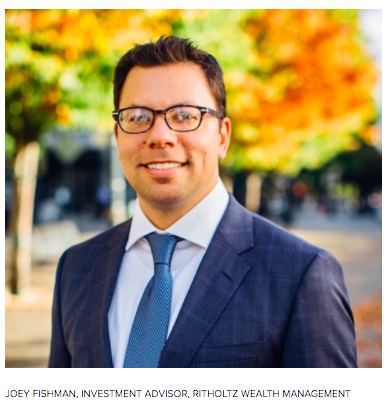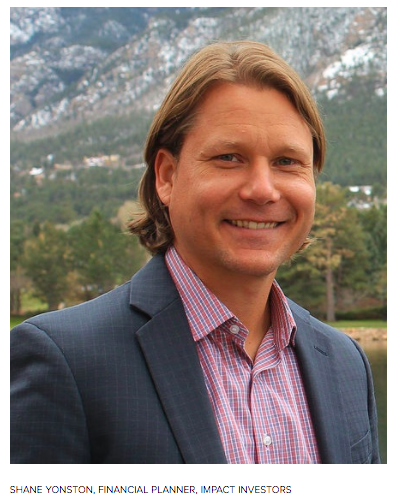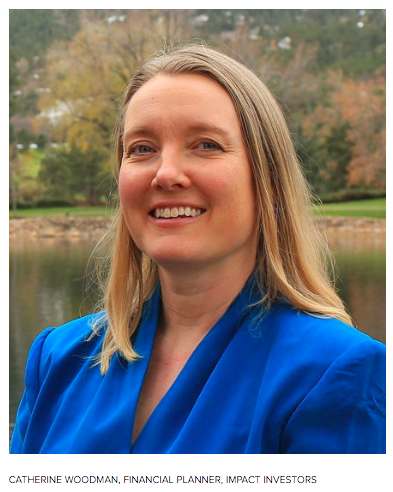Trump Creates Positive Effect on Socially Responsible Investing
A version of this article I wrote was originally published by CNBC here.
Donald Trump’s surprising ascent to president of the United States has brought many unexpected effects to the financial markets. Ironically, one has been a rapid increase in interest and adoption of impact investing and other types of values-based investing.
Impact investing, or values-based investing, is a type of investing that helps people and/or organizations align their investments with their personal values. There are many varieties of this type of investing, and it goes by many names, including socially responsible investing and green investing.
There has been a rise in assets in sustainable, responsible and impact investment strategies, to $12 trillion at the beginning of 2018, up from $8.72 trillion at the beginning of 2016, according to a US/SIF Foundation report on investing trends.
So while I would definitely wager that most SRI professionals were disappointed that Trump won, the silver lining has been that it’s inspired many investors to align their money with their values. Ironically, the president has been good for the environment.
Various industry studies show that most individual investors are interested in sustainable investing. A Morgan Stanley survey found that 75% of individual investors (and 86% of millennials) are interested in sustainable investing, with 80% interested in investments that are customized to meet their values. Additionally, a Fidelity study shows 37% of millennials currently own sustainable investing strategies and another 40% are interested in adding them to their investment strategy.
This increasing demand for impact- and values-based investing certainly has been aided along by socially progressive investors who were spurred by the Trump election to vote with their wallets, according to some financial experts. Many Americans were surprised by Trump’s election, and some found themselves at an inflection point, suddenly wanting to express their values publicly through marches, privately through conversations (and arguments) with loved ones, and through how they spent and invested their money.
To that point, Certified Financial Planner Cathy Curtis, owner of Curtis Financial Planning, said that she saw this directly in her own practice.
“After Trump won, I had a meeting with one of my clients, a thoughtful and politically informed person; she was in shock at Trump’s win,” Curtis said. “During our meeting, my client told me she couldn’t stand the thought of her money being invested in companies whose CEOs were Trump supporters.”
Curtis explained that she didn’t have a way to screen for companies with Trump-supporting CEOs.
“So I suggested that, over time, due to tax implications, we move [this client] into exchange-traded funds and mutual funds that screen for ESG [environmental, social and governance] criteria so that her investments would be more closely aligned with her values,” Curtis explained.
Joey Fishman, an investment advisor representative at Ritholtz Wealth Management, who is a subject matter expert for sustainability themed portfolios, saw a similar trend.
“We received a ton of inquiries after Trump was elected,” he said. “Demand came from two different types of investors. The first were well-educated millennials who wanted to invest their values and were willing to put a ‘stake in the ground.’”
That group aligns well with an evidence based process, Fishman explained.
“The second type of prospects were looking for investments that reflected their specific, idiosyncratic values,” he said. “Unfortunately, these folks weren’t a fit, but it was helpful to hear their experiences and learn more about what helped shape their values.”
At Impact Investors, an advisory firm focused exclusively on sustainable and impact investing strategies, advisors reported an increased interest in values aligned investing from existing clients after Trump was elected president.
“I recall conversations just after the election with clients who wanted to engage in more active investments than ever, given the likelihood that any government efforts on social and environmental policy would likely be fruitless over the following four years,” said Shane Yonston, a CFP and founder of Impact Investors.
“Trump is a conversation in every client meeting,” added Catherine Woodman, a CFP and principal advisor at Impact Investors. “Clients want to use every avenue they can to push back on the presidential administration.”
The advisors at Impact said they had clients reach out within weeks of the election, asking that the firm screen out any companies that Trump profits from. Additionally, they added that some clients recently requested not to own any company involved in building the border wall.
CATHERINE WOODMAN, FINANCIAL PLANNER, IMPACT INVESTORS
These type of advisor/client conversations just after Trump’s victory were the beginning of what the SRI and impact investing community would see as the “Trump effect” — an increase in clients wanting to align their money with their values.
To that point, the hashtag #GrabYourWallet is a social media campaign for economic boycotts against companies that have any connections to Trump.
Additionally, reflecting investor interest in climate change, gender equality and immigration issues, OpenInvest, an impact investing robo-advisor, created an investable portfolio screen called Stand Up to Donald Trump. It allows investors the opportunity to avoid companies that financially support Trump.
The socially responsible investing field is a mature field with many decades of history, but until recently has remained relatively small and stable in the U.S. However, the last two years have brought a tremendous rise in demand and a proliferation of new “green,” “ESG” and “sustainable” investment products — thanks, ironically, to the election of Donald Trump.
— By Sonya Dreizler, CNBC contributor and founder of Solutions With Sonya




